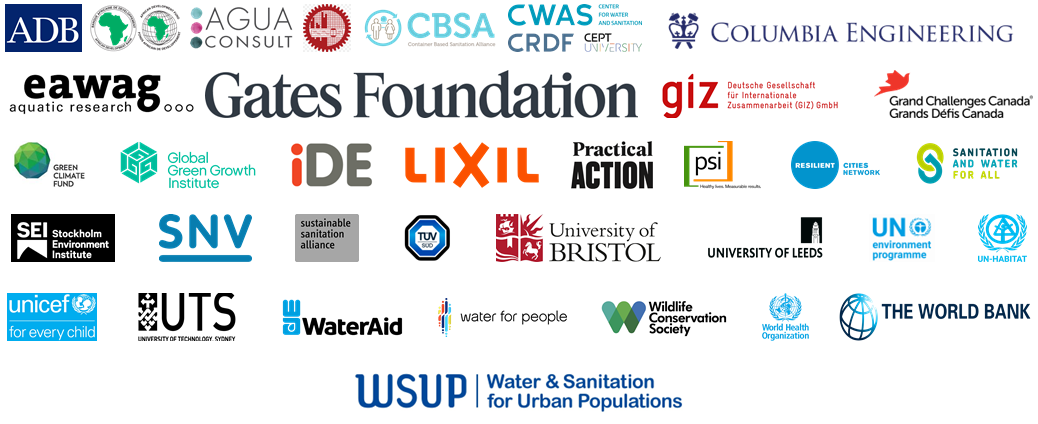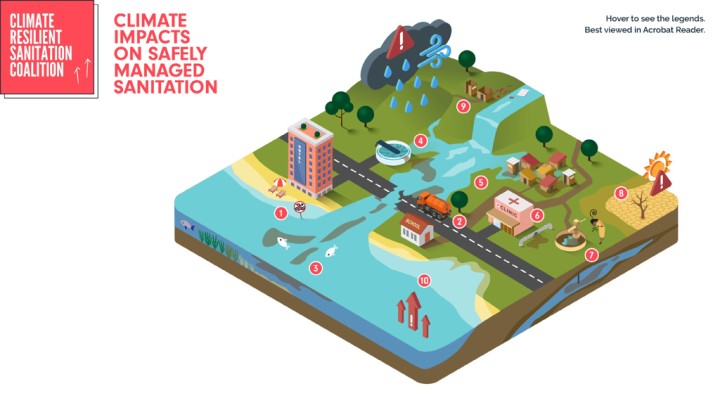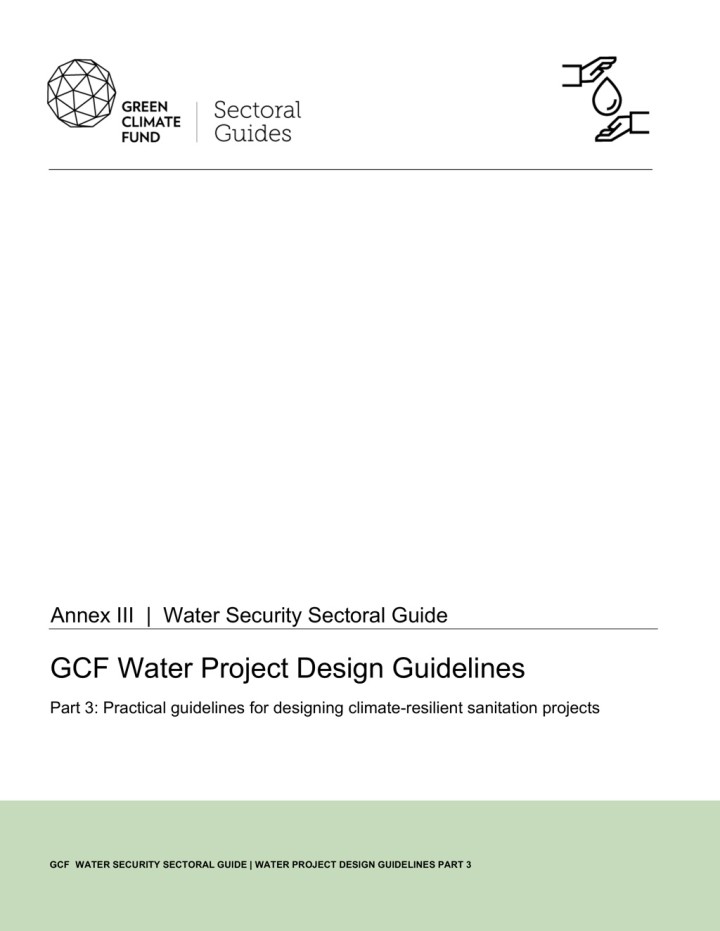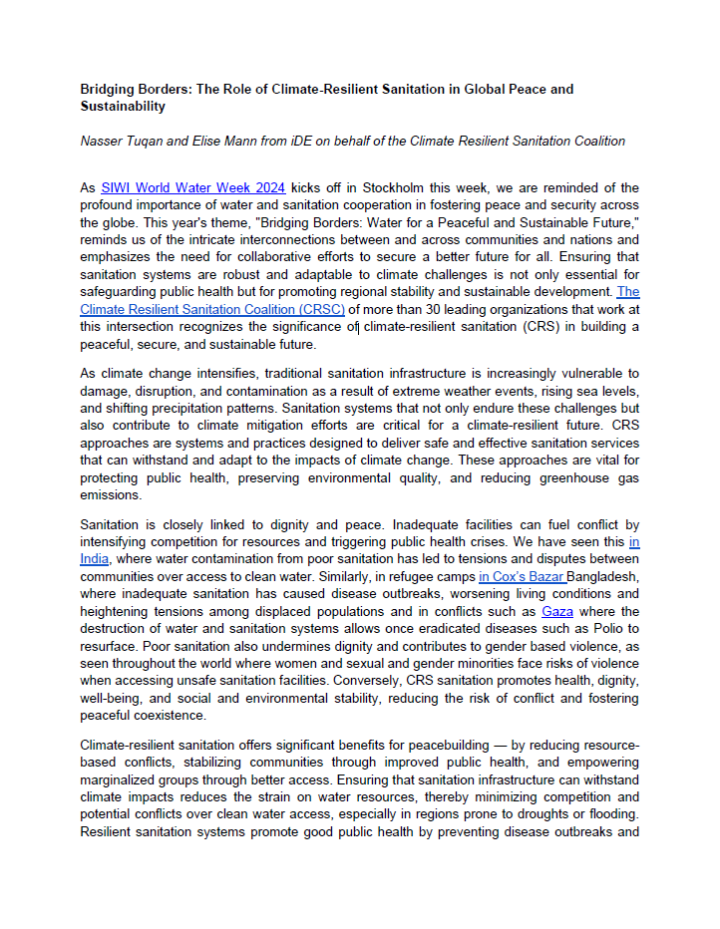- Health: Loss of sanitation service due to floods and droughts 1 disproportionately affects incidence of diarrheal disease – cholera countries, cases, frequency and size of outbreak have all increased dramatically in recent years 2. Change in temperature is also causing vector-borne diseases, such a dengue fever, to thrive especially where wastewater management and drainage are poor 3.
- Institutions: Sanitation in schools and health care facilities is vulnerable to climate hazards such as flooding and sea level rise which damage infrastructure. This puts students, teachers, patients, family members, doctors, nurses, etc. at elevated risk of being exposed to diarrheal diseases. Climate events disrupt the education of 40 million children each year.
- Marine Ecosystems: Damaged sanitation systems release sewage into marine ecosystems, damaging mangrove forests, coral reefs, and seagrass beds. These ecosystems sequester carbon at 35 times faster than terrestrial forests 4.
- Emissions: Poorly managed sanitation is a significant greenhouse gas (GHG) emitter, primarily through methane from sludge. One assessment estimated that nearly 50% of a city’s GHG emissions came from sanitation 5.
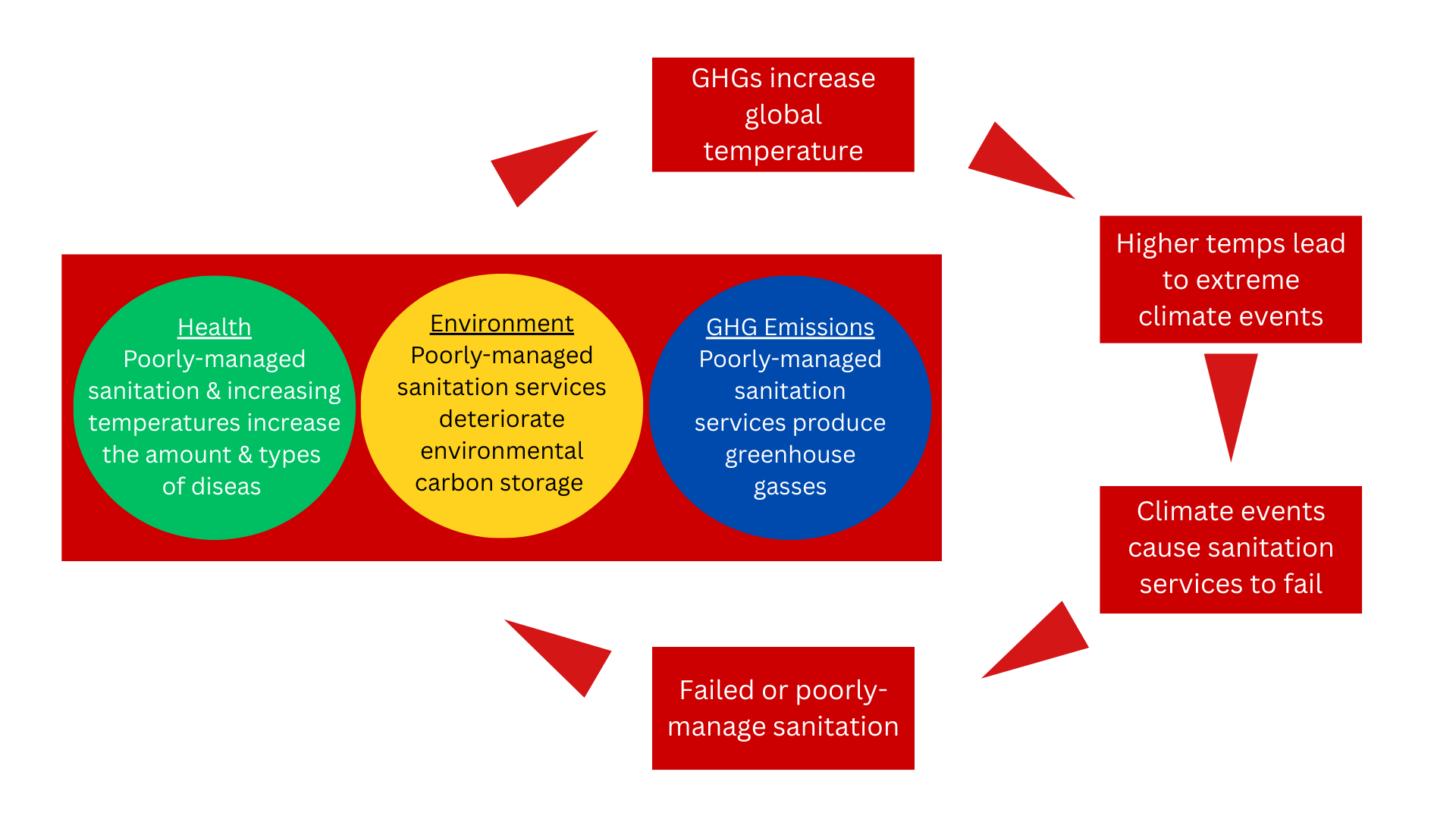
Figure 1 Interrelationship of sanitation and the climate crisis.
To address this situation, in 2022 the Climate Resilient Sanitation Coalition was launched in response to the joint Call to Action launched at COP27. The Coalition was formalised under the vision of:
Integrating sanitation into global and national climate policy & practice; and
integrating climate into global and national sanitation policy & practice.
The coalition is a growing collaboration of international organisations, research organisations and practitioners working collectively towards improved prioritisation, capacity and investment in climate resilient sanitation. Currently Coalition members represent almost 35 organisations implementing climate resilient sanitation (CRS) programs in almost 80 countries.
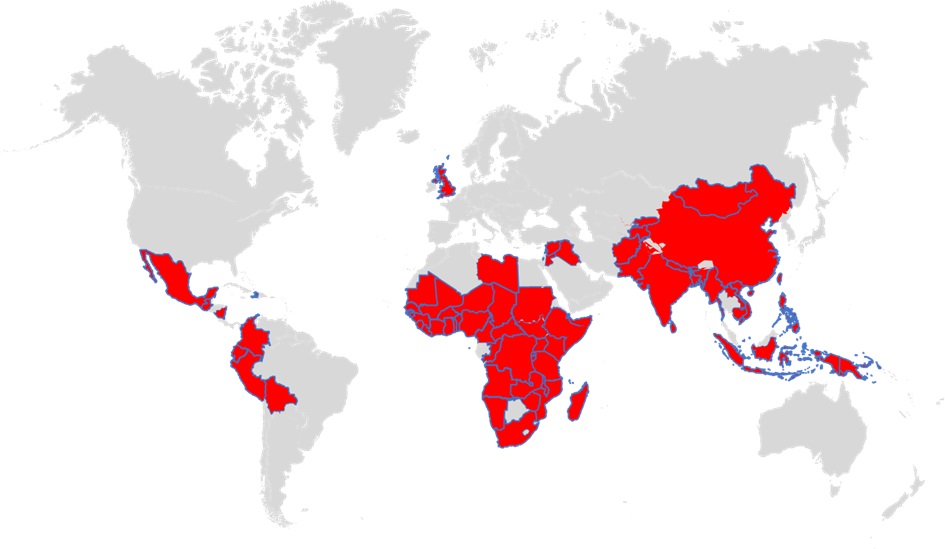
Figure 2 CRSC Member Activity Countries
Coalition Members
Activities
Operating at a global level, the Coalition currently has five workstreams:
- Integrate sanitation into global and national climate policy and practice (e.g., development of a sanitation annex for the GCF Global Guidelines).
- Support national governments with tools, evidence, and expertise to incorporate CRS into government policies, plans, and strategies (e.g., National Adaptation Plans and Nationally Determined Contributions).
- Increase the prominence of sanitation in climate discussions through active dissemination of evidence and experiences.
- Attract finance to the climate resilient sanitation sector, including developing the relevant climate rationale.
- Build the evidence base for climate resilient sanitation, including in connection with adjacent sectors (e.g., water supply, solid waste management, agriculture, ecosystem management, education, health, environment, etc.).
Key external products
- Access our member resources on sanitation and climate mitigation, adaptation and financing.
- Call to Action: Ensuring access to climate-resilient sanitation serviced for 3.6 billion people by 2030: A call to action for acceleration
- Opportunities for sustainable sanitation in climate action – Factsheet of Working Group 3
- Climate Resilient Urban Sanitation – Accelerating the Convergence of Sanitation and Climate Action
- Why Sanitation is Critical for Action Towards the Global Methane Pledge
- Linking with climate sector to achieve safely managed and climate-resilient sanitation
- Why we need strong systems to ensure progress on safely managed sanitation
- Green Climate Fund (2022). Sectoral guide: Water security Green Climate Fund Annex IIl: Practical guidelines for designing climate-resilient sanitation project
Webinar Resources
All webinar resources can be collectevily found in the following supage: Climate Resilient Sanitation Coalition Webinars
Bisi Agberemi
UNICEF • USA
Juliet Willetts
Professor & Research Director
UTS • Australia
Professor Juliet Willetts leads applied research to improve development policy and practice, addressing social justice and supporting sustainable development. She is a recognised expert in water and sanitation in Asia and the Pacific, also making significant contributions to gender equality, climate resilience, governance and accountability, urban development, monitoring, evaluation and development effectiveness.

